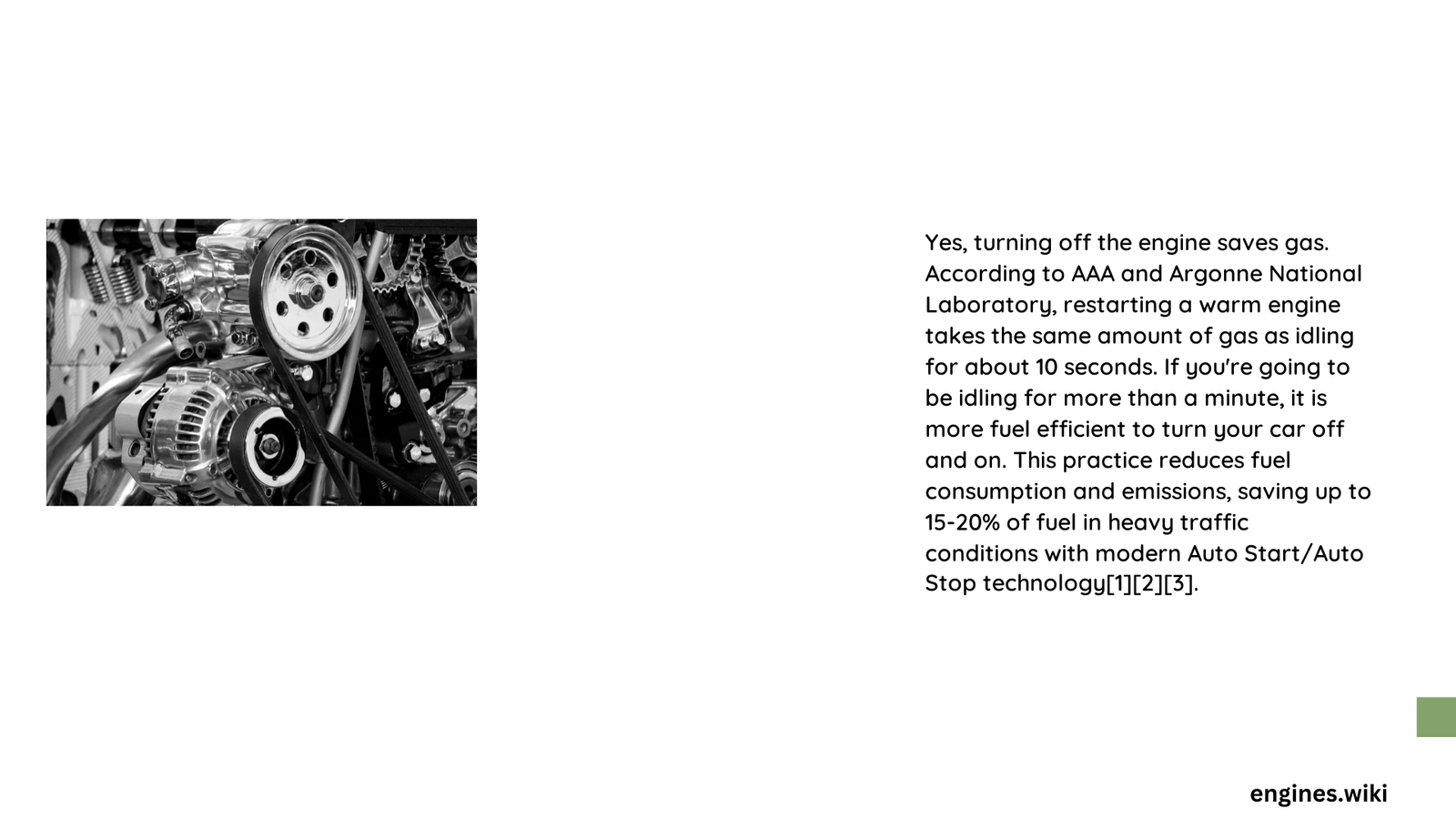Modern drivers constantly seek ways to reduce fuel consumption and minimize environmental impact. Turning off your engine during short stops can save substantial amounts of fuel, with potential savings ranging from 0.08 to 2.4 gallons monthly, depending on driving habits and vehicle type. This comprehensive guide explores the science behind engine shutdown and its direct impact on fuel economy.
What Happens When You Idle Your Vehicle?
Idling is a common practice where drivers keep their engines running while stationary. However, this seemingly harmless habit can lead to significant fuel waste and unnecessary environmental strain. Let’s break down the mechanics of fuel consumption during idle periods.
How Much Fuel Does Idling Consume?
| Engine Size | Fuel Consumption per Hour | 30-Minute Idle Waste |
|---|---|---|
| 1.5L Engine | 0.16 gallons/hour | 0.08 gallons |
| 2.0L Engine | 0.22 gallons/hour | 0.11 gallons |
What Are the Fuel Savings When Turning Off Engine?
Key findings reveal remarkable fuel efficiency benefits:
- Minimal Restart Fuel Usage: Starting a 1.5L engine consumes only 1.1-1.2 milliliters of fuel
- Breakeven Point: Stops longer than 7-10 seconds justify engine shutdown
- Potential Monthly Savings: Up to 2.4 gallons per month
Can Modern Vehicles Handle Frequent Restarts?

Contrary to older beliefs, contemporary vehicles are engineered to withstand multiple starts:
- Robust starter motors designed for frequent use
- Advanced electronic systems minimize wear
- Negligible impact on vehicle longevity
What Factors Influence Engine Shutdown Efficiency?
Several variables affect the fuel-saving potential:
- Vehicle Type: Compact vs. SUV engine characteristics
- Temperature Conditions: Cold weather restart considerations
- Air Conditioning Usage: Impact on restart efficiency
How to Maximize Fuel Savings?
Practical strategies for reducing fuel consumption:
- Avoid unnecessary idling
- Use GPS tracking to monitor idle times
- Implement driver education programs
- Consider auxiliary power units for stationary power needs
Are There Environmental Benefits?
Beyond personal fuel savings, engine shutdown offers:
- Reduced carbon emissions
- Lower greenhouse gas production
- Decreased local air pollution
- Contribution to sustainable transportation practices
Technical Insights for Fuel Efficiency
Fuel Consumption Calculation:
– 1.5L engine: 0.63 liters/hour idle consumption
– Restart fuel: Approximately 1.1-1.2 milliliters
– Net savings: Significant for stops over 10 seconds
Conclusion
Turning off your engine during short stops is not just a fuel-saving technique—it’s a responsible driving practice that benefits both your wallet and the environment. By understanding the science behind engine shutdown, drivers can make informed decisions that contribute to more sustainable transportation.
Recommendations
- Always assess individual driving conditions
- Follow manufacturer guidelines
- Prioritize smooth, efficient driving techniques
Pro Tips
- Use modern vehicle technology
- Monitor fuel consumption
- Practice conscious driving habits
